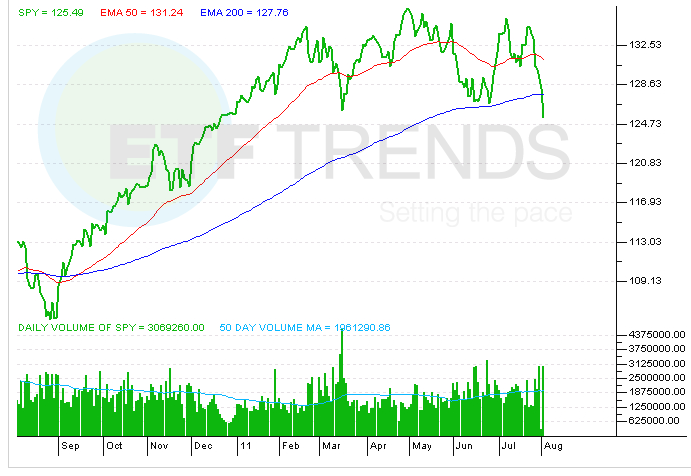Don t Trade Commodities Invest in Them US News
Post on: 13 Июль, 2015 No Comment

It’s been a rough go for commodities this year, but they’re a valuable part of a long-term portfolio.
Simeon Hyman
It’s been a good year so far for most investments, except commodities. The Standard & Poor’s 500 index, which many consider the best measure of stock-market value, is up around 17 percent as are real estate investment trusts. International stocks are up around 10 percent. Commodities, meanwhile, are down more than 5 percent.
But when you look for a logical explanation of why commodities are in the doldrums, it gets downright confusing. Gold is down 17 percent despite the fact that central banks around the world keep printing money — something you would expect to boost the value of the precious metal. Natural gas is up 17 percent even though dramatic increases in supply from fracking are expected to pressure prices lower. (Since mid-2012, the price of natural gas has more than doubled.) Agricultural commodities are down from their 2012 drought-driven highs.
It’s enough to befuddle most people. The truth is that the average individual investor has neither the time nor the expertise to be a commodities trader. And the mere mention of commodities futures turns most people off entirely. Still, there are effective ways to incorporate commodities into a long-term investment strategy.
Commodities are an important part of a well-constructed long-term portfolio as a portfolio-diversification tool. It’s true that commodities have behaved much like stocks since the 2008 financial crisis, but over the long term they demonstrate a low correlation with equities. (That’s why at times, when it seems as if nearly everything in your portfolio is going up, your commodities are left behind.)
iStockPhoto
And while bonds also offer diversification benefits compared to stocks, commodities deliver the same benefit with the potential of much greater returns (though, of course, with greater risk) — nearly three times the return of bonds over the last decade and a half.
Predicting what will happen next with commodities can be difficult at any time. The current outlook, for example, is a mixed bag.
Global monetary policy will likely provide ongoing support for commodity prices, but the reason for that policy — weak economic growth — puts downward pressure on commodities. Emerging-market growth could help. Gold, despite its drop from recent highs, still has a role in helping diversify a portfolio. And if weather patterns get back to normal, it might drive agricultural commodity prices down.
So rather than trying to pick the commodity sector that will win or lose at any particular moment, most investors should fulfill their commodities allocation with an exchange-traded fund or mutual fund that has a mix of energy, metals and agricultural products (such as grains, livestock and coffee). For most investors, holding a broad basket of commodities is a prudent approach.
Commodities should amount to about 5 percent of the typical portfolio and can be somewhat higher or lower based on the level of risk an investor wants to take. As with any other permanent part of an investment portfolio, there may be opportunities from time to time to either underweight or overweight the commodities allocation.
One final point: Investors sometimes make the mistake of seeking diversification by investing in the stock of commodities-related companies. While companies that produce, refine or transport commodities should be part of a diversified stock allocation, they are still stocks and are likely to behave like stocks. As such, they are not a substitute for direct investment in commodities.
Simeon Hyman is Chief Investment Officer of BloombergBlack, a new offering available by invitation to affluent investors looking for a smart, easy way to take control of their personal wealth. For more information, visit BloombergBlack.
This material is for informational purposes only. It shall not constitute or be construed as an offering of financial instruments by Bloomberg Wealth LLC or its affiliates, or as investment advice or recommendations by Bloomberg Wealth LLC or its affiliates of an investment strategy or whether or not to “buy,” “sell” or “hold” an investment. There is no guarantee that any forecasts or opinions in this material will be realized.
All investments involve risk, the amount of which may vary significantly. Investment performance can never be predicted or guaranteed and the values of your investments will fluctuate due to market conditions and other factors. Diversification does not guarantee a profit or protect against loss.
Bloomberg Wealth LLC will recommend exposure to commodities only through broad-based collective vehicles, such as index funds.
Bloomberg Wealth LLC does not control, has not verified, and is not responsible for the accuracy or completeness of any content in third-party links or material.














